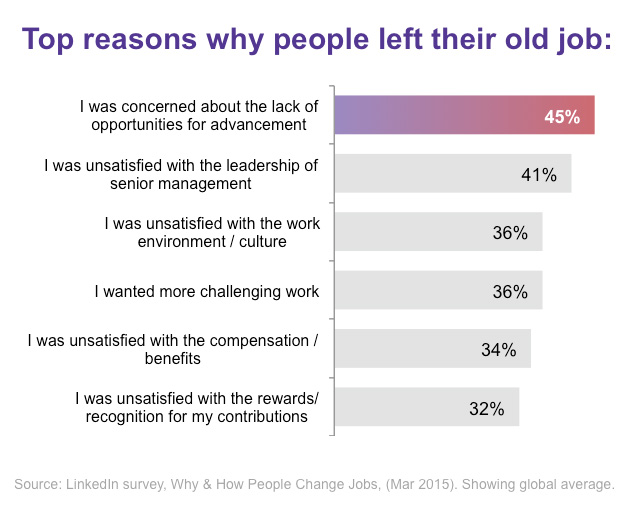
Are you ready to bail? It could be due to stress, clashing personalities or a lack of appreciation in the workplace. Many people feel like throwing in the towel after a particularly stressful day. Or maybe smash their guitar like a 90s alt rock band. However, there’s a difference between a bad day and a bad job. Here are the signs to identify which one you’re experiencing, and which way to go.
Examining Your Job Satisfaction
Thinking about your job is probably something you do daily, especially if it’s less than satisfactory. Unfortunately, most of us do so on a basal level. We register feelings of unhappiness and trudge on to another day without considering the emotions that arise.

There is no hard-and-fast method of figuring out if your job is worth keeping. Every job is different, and the core principles that can guide you in evaluating your job are personal. No universal formula exists because everyone holds different values. You must first figure out what you want out of your job and if the job has the potential to deliver this to you.
First, consider how you feel after a day at the office (or in the field, in the car or wherever your workplace happens to be). Are you stressed out, anxious or nervous about your job duties? While everyone experiences some degree of stress on the job, it’s important to know when it’s starting to affect you adversely. Trouble sleeping, loss of appetite and general feelings of negativity seeping into other aspects of your life are all signs that the stress of your job is much more than a healthy workplace challenge. Fortunately, you aren’t alone. One Forbes study found that over 42 percent of Americans quit their jobs because of stress. That’s almost half the workforce!

You may be upset at the interactions you have in the workplace even if you like your job, which can leave you with feelings of helplessness and anger. Someone could be taking credit for your work, leaving you with little to no appreciation and a grudge to boot. You may have one of those infamous evil bosses who like to yell. It could be that you’ve been long overdue for a raise or don’t feel as if you’re making the proper salary for your position. If this is the case, check out these tips on standing up for yourself in the workplace. You may find that you can eliminate the negativity that comes from mismanagement, bad coworkers or a blame-loving boss without having to leave a position you enjoy.
Perhaps the most important thing to consider is the opportunity for growth and the matter of fulfillment. Even if you have a good boss and work alongside your best friend, a job may not be for you based on its potential to gratify you. Do you feel as though you’re accomplishing something important every day? Are you working toward goals that make you and your workplace better? Do you feel as if you’re contributing to society in some way?
If you answered “no” to any or all the above questions, you may be in the wrong job. Many people start out in the workforce with goals. They want to change something. And while sometimes you can adapt your goals to fit a specific job, it doesn’t always happen.
Your Dreams Versus Your Reality
Everyone has dreams. One of the biggest mistakes you can make is to push them aside for the sake of one more paycheck. The “I’ll quit next month” mentality can often lead to dissatisfaction and unhappiness down the road. Consider why you got this job in the first place. Was it only a stepping stone on the road to something better, or were you convinced you’d be happy at this company for the rest of your life? If you only took the job for the paycheck (as many of us do), the lack of potential for growth can be stunting.

You start out a job with expectations and hopes of where that job will lead you. If you don’t see your job leading you anywhere, then it may be time to go. You certainly don’t want to wake up one day and regret the last 20 years of your life spent doing something you didn’t love. You want to do something that inspires you, something that gets you out of bed every day excited and ready to get down to business.
Of course, you’ll have bad days at work. Even in your dream job. But wouldn’t you rather have a few bad days as a ski instructor (assuming that’s your dream, of course) than an overall mediocre life experience as a paralegal (assuming this is not your dream, of course)? The analogy works for every and all positions, depending on your dreams and your reality. The short answer is this: If you see yourself moving closer to your dreams at your current position, it could be worth it to stick it out. If you see yourself stagnating or, even worse, moving further away, then don’t hold out hope for too much longer. It’s better to act now, even if you just start with earning side cash.
The Tipping Scales of Security and Happiness
When is it necessary to leave a secure position? The short answer is when you aren’t happy there anymore. Personal development, in this case, is linked intricately with career advancement, and that doesn’t necessarily mean more money. Just ask any struggling artist, freelancer or new business owner. These people will likely divulge that they make even less money than at their old positions, or at least they did when first starting out. So, why did they leave their old jobs, and why should you?
At a point, the scales of security and happiness will tip out of your favor so far you’ll find that staying at a job you hate is no longer worth the security you feel there. The better option, the one you’ll daydream about as you sit at your desk, will be the search for happiness somewhere else. Of course, this doesn’t mean you have to start your own business. It could just mean you need to look for a different position at a company that suits you better. You might just need a change of culture, or you might need to move into a different field altogether.
Quitting a job can be terrifying. Putting your security on the line with all those unknown factors makes you feel like you’re standing in the middle of the casino about to roll the dice. You’ve got your life savings in your hand and not the faintest idea of how to play the game. However, only those who take risks get substantially rewarded. Evidence of this is found all around us. Take the courageous roulette superstar Ashley Revell, who famously bet his entire life savings on red and doubled it within seconds — all because he had a feeling he would win. You too can be a Revell (or a Jobs, a Dell or anything you want to be) if you listen to your gut and always bet on yourself. Spinning your own roulette wheel takes courage, but keep in mind, you’ve got more than money on the line. Your happiness is riding on this as well.
When You Know It’s Time To Go
Gathering the courage to spin that roulette wheel isn’t easy. But when you feel as if your happiness, health or financial situation isn’t improving or is even declining you’ll know. And you’ll get the results you crave in time. One NBER study found that professionals who change jobs often end up getting paid later in life. This is because job-hopping gives you a chance to get a feel for the opportunities around you, finally allowing you to settle down with something you’re passionate about. And passionate people put their hearts into their jobs, often leading to higher financial results.
Whatever your reasons are for quitting your job, be assured that they are good reasons. Whatever others may think, your life is your own and your judgment is sound. If you know you need to leave, then don’t wait. Put aside your fear. There is no reason to put a hold on your own happiness. Your life and your dreams are what make you unique — so let them shine! But before you make a move, don’t forget to revisit your cover letter.
Leave a Reply